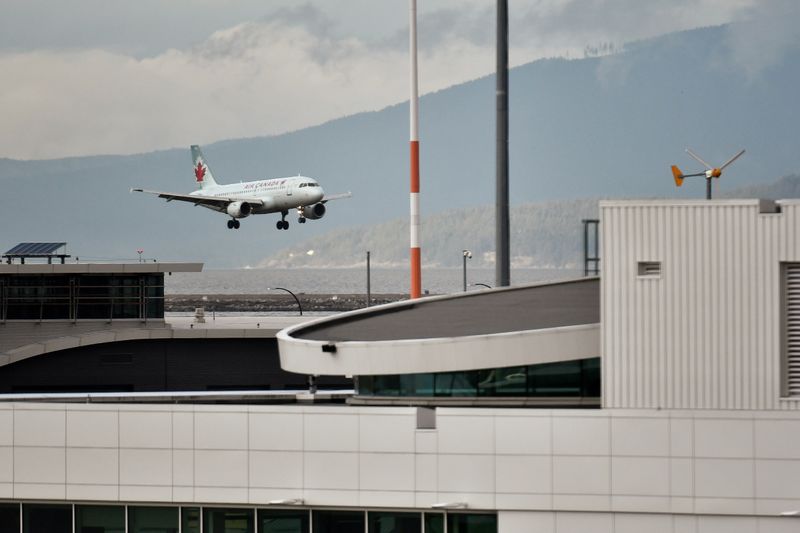By Allison Lampert and Ankit Ajmera
(Reuters) - Air Canada (TO:AC) missed analysts' estimates for quarterly profit on Tuesday, as the airline spent more to fly less-efficient replacement aircraft due to the global grounding of Boeing Co's (N:BA) 737 MAX jet.
The country's largest carrier is working to improve margins while flying more passengers but faces capacity constraints because of the MAX's grounding, with the coronavirus outbreak providing additional challenges.
Air Canada, which suspended flights to Beijing and Shanghai from January 30, 2020 until February 29 due to the outbreak, said it was impacted by not flying to China, but gave no specifics. China represents about 6% of its available seat miles.
The outbreak comes as North American airlines have faced higher costs and canceled thousands of flights since the grounding last March following two fatal crashes involving the Boeing plane.
Air Canada shares were down 2.4% in early trading.
"There is some impact from not flying to China for two months of Q1, including cargo as well," Air Canada Chief Financial Officer Michael Rousseau told analysts.
"But certainly, the ... MAX is the single biggest item."
The airline expects aircraft maintenance expenses to increase 15%, or by about C$150 million ($113.2 million) this year from 2019. It expects EBITDA (earnings before interest, taxes, depreciation, and amortization) to drop by C$200 million during the first quarter of 2020 largely due to the absence of the MAX, one of its most-efficient aircraft.
For the full year 2020, Air Canada is expecting a "small" increase in EBITDA. Analysts were expecting 2020 EBITDA to rise more than 10% to C$4.05 billion, according to IBES data from Refinitiv.
Air Canada, which is replacing its Airbus narrow-body fleet with Boeing aircraft, had expected to expand its fleet of 24 MAX jets to 50 by mid-2020.
Rousseau said the carrier has been in discussions with Boeing to reach a financial arrangement in the wake of the grounding. He said "an initial settlement payment was made to Air Canada in the fourth quarter of 2019, with any further amounts subject to the finalization of the agreement."
The company reported adjusted net income of C$47 million, or 17 Canadian cents per share, for the fourth quarter ended Dec. 31, lower than the C$55 million, or 20 Canadian cents per share, a year earlier.
Analysts on average had expected quarterly earnings of 38 Canadian cents per share and revenue of C$4.53 billion, according to IBES data from Refinitiv.

($1 = 1.3253 Canadian dollars)